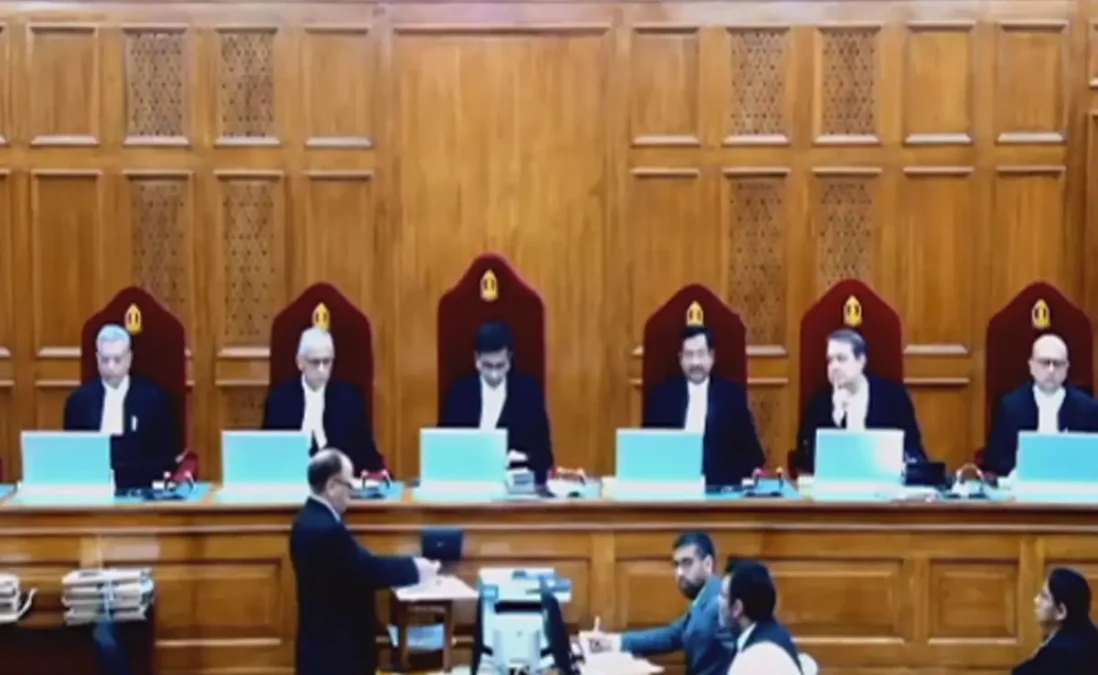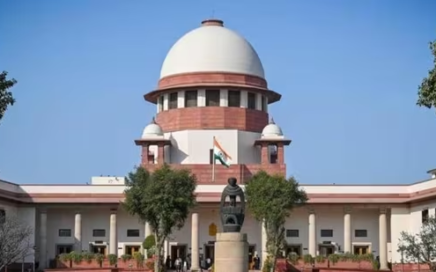New Delhi: In a landmark judgment, a seven-judge bench in the Supreme Court held that lawmakers, including MPs and MLAs, are liable to be prosecuted under the Prevention of Corruption Act if they receive monetary benefits for their votes and speech in Parliament or Assembly, overruling the 1998 verdict of the apex court in PV Narasimha Rao case.
Prime Minister Narendra Modi hailed the Supreme Court’s verdict on ‘immunity in bribery case’ and stressed that ‘it will clean politics’. Taking to social media platform X, Modi said, “Swagatam.” “A great judgment by the Hon’ble Supreme Court which will ensure clean politics and deepen people’s faith in the system.”
A seven-judge constitution bench headed by Chief Justice of India DY Chandrachud unanimously overruled the 1998 verdict delivered by a five-judge bench in the JMM bribery case by which MPs and MLAs were granted immunity from prosecution for taking a bribe to make a speech or vote in the legislature.
Pronouncing the verdict, CJI Chandrachud said bribery is not protected by parliamentary privileges and the interpretation of the 1998 verdict is contrary to Articles 105 and 194 of the Constitution.
“An MP/MLA can’t claim immunity from prosecution on a charge of bribery in connection with the vote or speech in the legislative house,” ruled the seven-judge bench.
The SC said corruption or bribery by a member of legislature erodes probity in public life and accepting bribes itself constitutes the offence.
“To give any privilege unconnected to the functioning of Parliament or legislature will lead to creating a class that enjoys unchecked exemptions from the operation of law of the land,” it said.
Parliamentary privileges are essentially related to the House collectively and necessary for its functioning, said the seven-judge bench.
“Elections to Rajya Sabha or to the office of the President/Vice President will also come under the ambit of Constitutional provisions applicable to parliamentary privilege,” the Supreme Court said.
The apex court vehemently rejected the notion that accepting bribes by legislators constitutes a privilege, asserting that such actions undermine the ethical fabric of public service. “Granting unconnected privileges would breed a class exempt from the rule of law,” it admonished, underscoring the indispensable nature of parliamentary privileges for the effective functioning of legislative bodies.
Reaffirming the sanctity of Constitutional provisions, the Supreme Court expanded the scope of parliamentary privilege to encompass not only collective legislative functions but also electoral processes such as Rajya Sabha elections and presidential appointments. The interpretation of the PV Narasimha judgment was deemed antithetical to the Constitutional ethos, creating a paradoxical scenario where legislators enjoyed immunity for illicit conduct.
Addressing the core issue of accountability, Chief Justice Chandrachud emphasized that the offence of bribery is cemented upon the acceptance of illegal gratification, irrespective of subsequent legislative actions.
The ramifications of this verdict extend far beyond legal corridors, resonating profoundly within the democratic framework of India. By dismantling the shield of immunity, the Supreme Court has reaffirmed the principle that integrity and accountability are paramount in sustaining parliamentary democracy.
Following exhaustive deliberations, a bench comprising the Chief Justice of India and six other esteemed justices reserved its order in October, recognizing the gravity of the issues at hand. The referral to a larger seven-judge bench underscored the significance of the matter, signalling a watershed moment in the moral fabric of the nation’s polity.
In elucidating the purpose behind Article 105(2) and Article 194(2), the top court emphasized the imperative of fostering an environment where elected representatives can discharge their duties with autonomy and accountability, free from the spectre of undue influence or corruption.

















